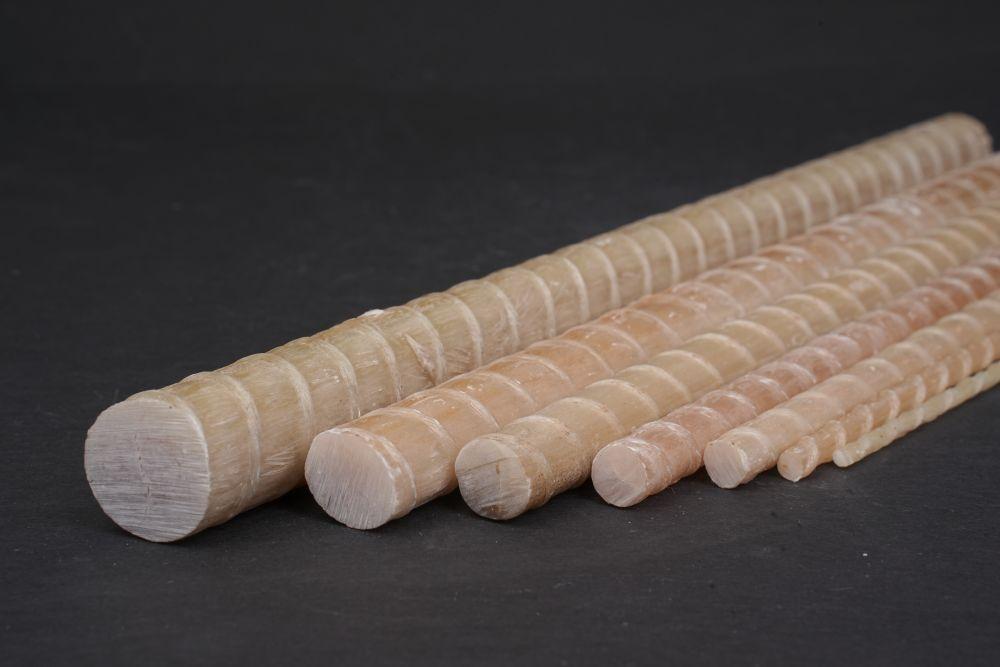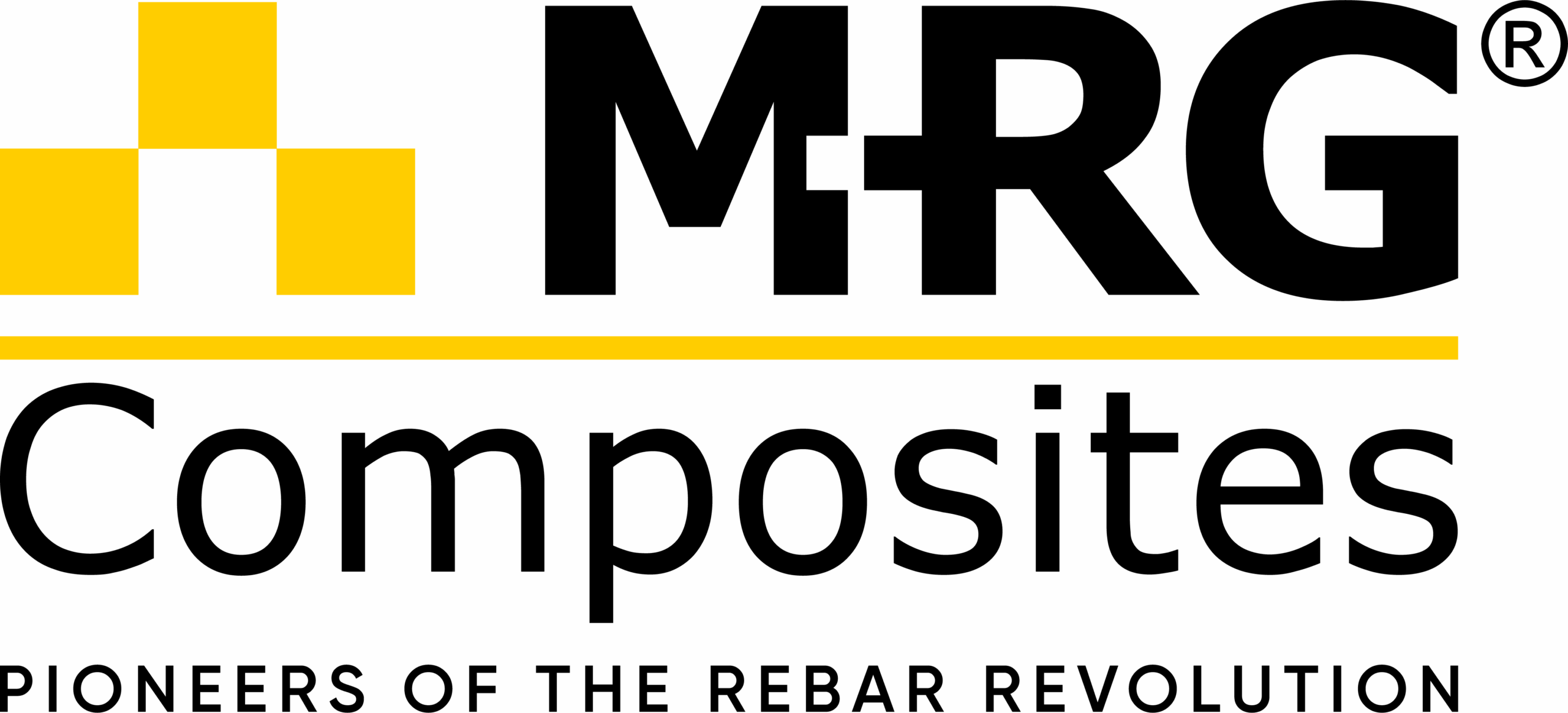- +919659859896
- india@mrg-composites.com
- We Ship Worldwide
- Download Company Profile
ISO 9001:2015 Certified

Corrosion Resistant
In construction, corrosion is one of the most important factors that threaten the durability and safety of structures. Steel reinforcement bars get corroded and weaken the construction; it requires regular maintenance and, at times, construction replacement. Frequently, contractors and builders encounter difficulties selecting the reinforcement that will help to hold construction and withstand destructive influence. GFRP Rebar (Glass Fiber Reinforced Polymer Rebar) answers all these problems. As a corrosion-resistant alternative, GFRP bars are engineered to eliminate rust, extend the lifespan of structures, and reduce maintenance costs.
Understanding Corrosion: The Problem Builders Face
Corrosion is one of the crucial problems faced by many contractors and structures. Corrosion is a natural process where a particular metal is detroit due to a chemical reaction with the environment. Moisture, salts and industrial pollutants accelerate this process and damage the construction. It majorly disturbs marine construction. For contractors, corrosion and its prevention are critical concerns. Construction requires regular maintenance and sometimes construction replacements. It increases the maintenance and replacement cost and time.
How does corrosion affect construction?
- Structural Integrity: Corrosion weakens the construction, leads to cracks, and reduces load-bearing capacity.
- Increase maintenance cost: corrosion weakens the construction. So, the construction requires regular maintenance, increasing the maintenance cost and time.
- Short construction lifespan: Coronavirus damages the construction, requiring regular maintenance or replacements. Builders need to rebuild the structure, which also increases the cost of construction and time.
Builders and contractors need a material that resists corrosion and provides lasting durability. GFRP Rebar completes this requirement, offering more strength and lighter corrosion resistance at lower prices.
What Is GFRP Rebar?
The full form of the GFRP Rebar is Glass Fiber Reinforced Polymer. It is a composite material combining high-strength glass fibres and polymer resin. Unlike steel reinforcement bars, GFRP does not corrode or rust. It is embedded with Glass Fibre and polymer resin. Glass Fibre protects the polymer resin. It increases the strength of construction and provides a longer life span. Glass-reinforced polymer is lightweight, offers high tensile strength, and ensures the integrity of construction.

Why GFRP Rebar for Corrosion Resistant Construction?
- Complete Corrosion Resistance: Steel rebars begin to rust when they come in contact with moisture and oxygen. In contrast, GFRP Rebars are immune to corrosion. GFRP Rebar is embedded with glass fibre and polymer resin. It makes the construction more stronger that can withstand in harsh conditions.
- Lightweight and easy to install: GFRP Rebar is ¼ lighter than traditional steel bars. Transportation of GFRP rebars is very easy compared to steel rebars. It also reduces the installation process, time and labour cost.
- Cost-effective: GFRP bars are durable construction materials. By using GFRP Rebar, the construction does not require regular maintenance and construction replacement. It saves the cost. The lightweight property of GFRP Rebar makes transportation easy and saves additional money.
- Superior Strength: GFRP Rebar is twice as strong as traditional steel rebar. GFRP makes the construction more stronger at lighter weight.
Applications of GFRP Rebars: Meeting Builder Requirements
- Marine Structures: Marine environments are amongst the most challenging for traditional construction materials because of constant exposure to saltwater, humidity, and high temperatures. Saltwater accelerates corrosion and weakens the construction.
- Industrial Plants: Industrial plants always deal with chemicals and other corrosive materials that can weaken the floors of industrial buildings. GFRP Rebars are an ideal choice for chemical, power, and other industrial plants.
- Bridges and highways: GFRP rebars prevent corrosion caused by de-icing salts, coastal humidity, and harsh environmental conditions. They are widely used in bridges, flyovers, and coastal highways to enhance lifespan and reduce repair costs.
- Water treatment plants: Wastewater treatment construction requires construction material that is resistant to moisture and chemicals, GFRP Rebar fullfill this requirement. Glass fibre polymer reinforced polymer ensures long-term durability.
- Tunnels and Underground Structures: Underground construction is most likely to be prone to moisture and aggressive soil conditions promoting steel rust.GFRP rebars are widely used in tunnel linings and underground storage tanks, offering a moisture-resistant solution that ensures safety and longevity.
- Residential and Commercial Buildings: In urban construction, GFRP rebars are used in foundations, parking garages, and rooftop pools. They eliminate corrosion risks from soil moisture, vehicle fluids, and pool chemicals, providing a long-lasting, cost-effective reinforcement solution.
GFRP Rebar Vs Steel Rebar Cost
Many contractors use steel rebar for construction. There are many differences between steel rebar and GFRP rebar. GFRP Rebar comes with many good properties such as corrosion resistance, strength, lightweight, non-conductive, etc. Using GFRP Rebar can decrease maintenance and construction replacement costs. At the same time, steel rebars are not compatible with water. Using steel rebar weakens the construction and increases maintenance and, at times, construction replacement costs. MRG Composites provides the best GFRP rebar price quality in India.
Conclusion: The Smart Choice for Corrosion-Resistant Construction
For contractors and builders looking to future-proof their projects, investing in GFRP rebars is a no-brainer. GFRP Rebar’s corrosion-resistant, lightweight, stronger, non-conductive properties make it an ideal choice for construction. It is a substitute for steel reinforcement bars. Whether you are looking for marine structures, commercial, residential, or all other construction, it is one of the best options for construction.

